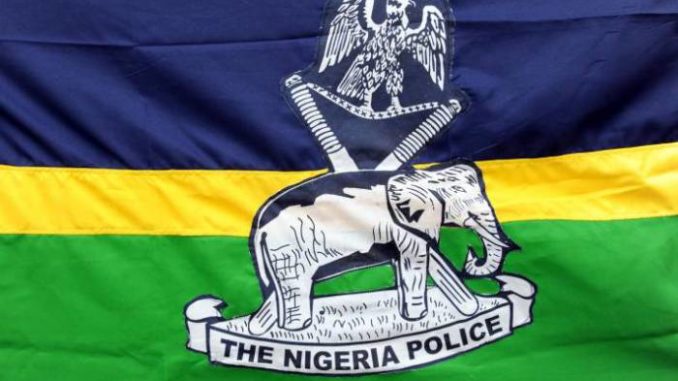
The Inspector General (IG) of the Nigeria Police Force, Mr. Mohammed Adamu the other day had cause to warn the officers and men of the force to conduct themselves with discipline and avoid violating the rights of citizens, lest they would be punished. Though the I-G’s warning is a step in the right direction, it is disheartening that he had to remind the officers of the law how to conduct themselves. This hints at something wrong within the system. And there are many instances to support this concern.
A few days after Adamu spoke in Abuja to senior personnel in charge of specialised teams within the force, a police officer in Delta State was reported to have, in a private dispute between two parties, misused his authority and powers by generally mistreating a lady and her widowed mother. This is only the most recent reported case of such an abuse of the authority to enforce law and order that the uniform confers on the relevant state officials. The details of the incident are still in dispute but it does not do the force proud at all to have its men mentioned in the public space in such a context. For the sake of the reputation and public image of the Nigeria Police, we expect the IG to order an investigation into this specific matter.
For too long, the reputation and public impression of the police have been negatively affected by the misbehaviour of the bad eggs within. Apart from other acts of professional misconduct levelled against individual officers- accidental discharge, extortion of public transport operators, illegal checkpoints and checking of vehicle documents, illegal payment for bail – accusations of highhandedness and arbitrariness in the performance of their duties have in the recent past also been levelled against the Special Anti-Robbery Squad (SARS). Things got so bad that an #End SARS public campaign by citizens caused the then acting president, Vice-President Yemi Osinbajo in an August 14, 2018 to issue a statement directing the then IG to ‘‘with immediate effect overhaul the management and activities of SARS and ensure that any unit that would emerge from the process should be intelligence-driven and restricted to the prevention and detection of armed robbery and kidnapping and apprehension of offenders linked to the stated offences, and nothing more.’’
Furthermore, to assuage a public very aggrieved by the acts of SARS, the VP directed the National Human Rights Commission to ‘‘set up a committee that will conduct a nationwide investigation of the alleged unlawful activities of SARS to afford members of the general public to present their grievances with a view to ensuring redress.’’
Adamu has at least two reasons to worry about the behaviour of his officers and men. First, this is not yet the force he promised the Commander-in-Chief, President Muhammadu Buhari and Nigerians in his inaugural speech on January 16, 2019. He had then promised to restore ‘‘the lost glory of the Nigeria Police Force, which remains a concern to governments at all levels, citizens, human rights groups , the international community and indeed well-meaning officers and men of the force…’’ He charged his personnel to ‘‘abstain from conducts that will drag the police into disrepute and put their career in jeopardy.’’ He promised the citizens a ‘‘policing system that will not only assure them of their safety but treat them with civility and holds their rights sacred.’’ Adamu also promised his appointer ‘‘the requisite leadership of the Force that meets Buhari’s expectations of a citizens-friendly, operationally efficient and ethically guided system…’’ Just last October, at a three-day retreat for senior officers in Lagos, Adamu spoke of a ‘‘community-oriented’’ organisation and he solicited the cooperation of Nigerians to ‘‘evolve a new police force.’’
Second, the Nigeria Police Code of Conduct copiously spells out the rules of conduct and engagement for officers and men in the course of duty –and even off duty. For any police officer who takes the content of the document to heart, there can be no imaginable reason to engage in professional misconduct. Among its many exhortations, the code enjoins policemen ‘‘to protect and uphold the rights of citizens, to be impartial and respectful in the performance of their duties’’ and that ‘‘all citizens will be treated equally with courtesy, consideration and dignity.’’ Officers are expected to ‘‘not knowingly restrict the freedom of individuals whether by arrest, or detention, in violation of the constitution and laws of the Federal Republic of Nigeria.’’ In order to ensure that its provisions are known to and made to work by everyone within and outside the force, it is stated that ‘‘the principles of the code will be given the widest possible publicity and translated into the major national languages to enable public participation in the monitoring of police conduct across the country.’’
It is fair to admit that one year is not enough to pass a verdict on the IG’s performance. But in truth, we dare to say that this IG inherited a force that was not at all worthy of a country running a constitutional democracy.
We would remind him nonetheless that, from the look of things so far, there is much work to do to align the attitude and behaviour of his men with the expectations of the Nigeria Police Code of Conduct. It is not for nothing that the police force and other law enforcement agencies are described as ‘disciplined forces. While acknowledging what has been achieved so far vis-à-vis the huge task of re-orientation, we would urge that Adamu to redouble his efforts in ensuring that his men and women wear discipline as a badge of honour.


Be the first to comment